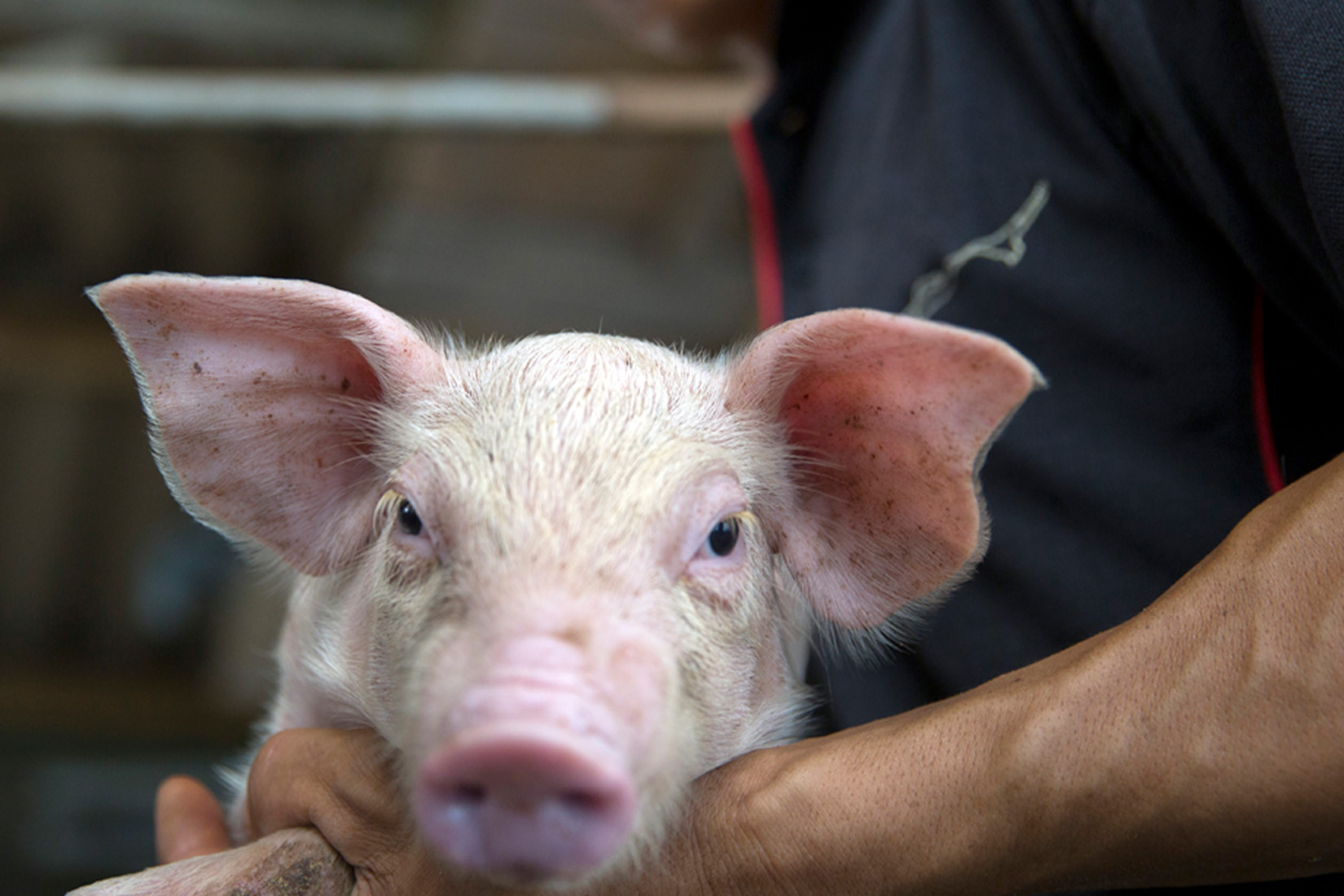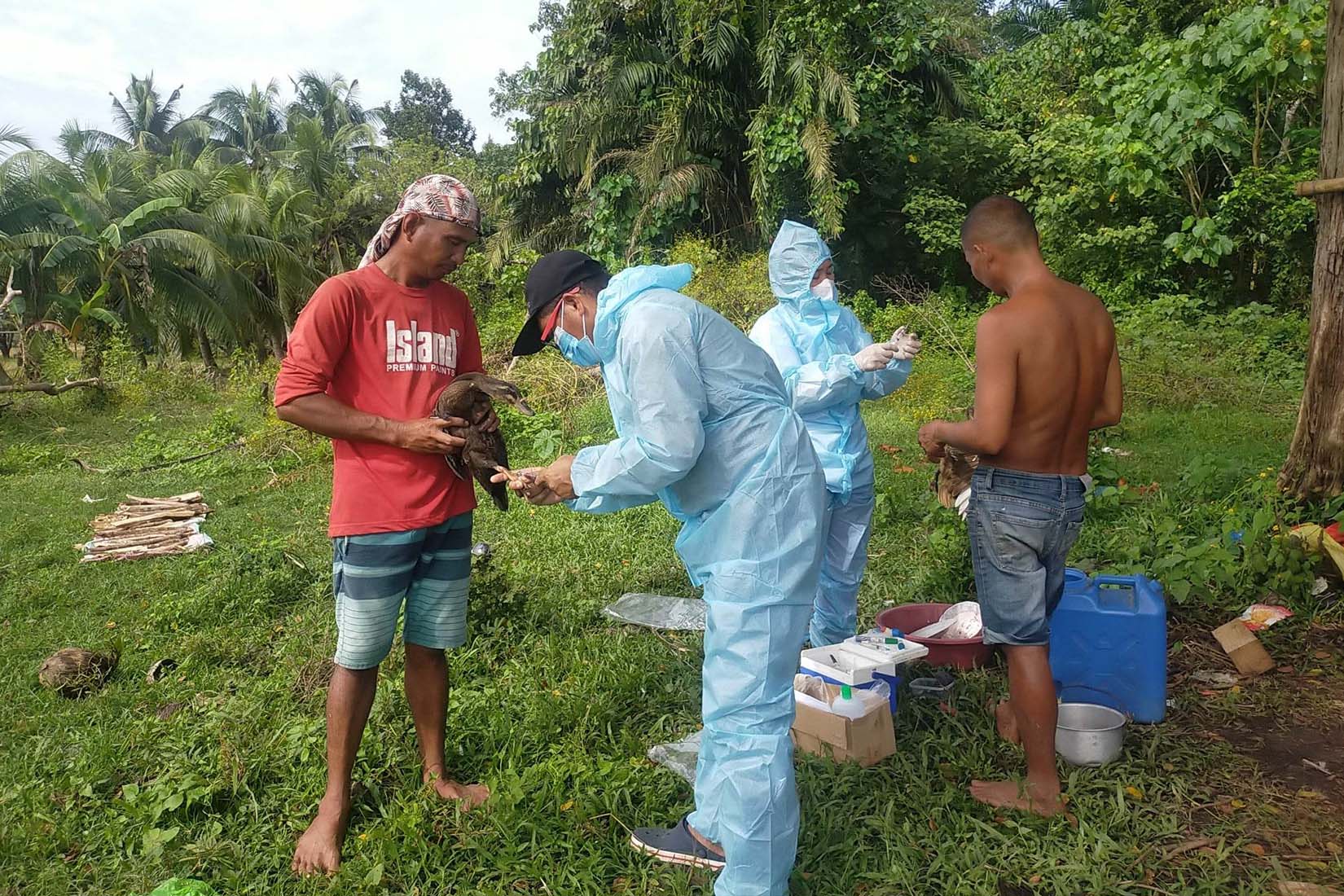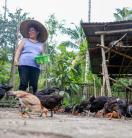Strengthening livestock disease surveillance in the Philippines

A new One Health research project in the Philippines will strengthen animal disease surveillance capacity against health security threats that severely impact the country’s livestock industry.
Led by the University of the Philippines Los Baños (UPLB), the project will improve policy and governance support for disease detection of African swine fever (ASF), avian influenza (AI) and antimicrobial resistance (AMR).
These diseases are some of the most prevalent animal health threats in the Philippines. Recent outbreaks of ASF and AI have disrupted food supply and increased production costs for smallholder communities dependent on livestock for food and income security.
The 3-year project is funded through a new One Health co-investment between ACIAR and Canada’s International Development Research Centre (IDRC). The project will utilise current socio-economic and socio-ecological system (SES) assessment approaches to One Health.
Recognising the interconnectedness of humans, animals, and the environment, One Health is a framework that helps to provide a better understanding of the integration between agrifood systems and human and animal health. Other applications of One Health include public health threats such as zoonotic diseases and Antimicrobial Resistance (AMR), which occurs when microorganisms that cause diseases no longer respond to standard treatments and adversely impact humans and animals.
Project leader from UPLB, Dr Yusuf Sucol, said the research team will work with government agencies, the livestock industry, farmers, and local communities to analyse the links, gaps and effectiveness of disease surveillance, control, and emergency measures against these three priority areas for the Philippines to inform better practices.
‘Scientific data and research from this project will serve as evidence and inputs to decision-making to support ASF, AI and AMR management and programs. The findings will assist in improving animal husbandry practices, farm operation standards, and compliance standards to protect and promote animal, human and environmental health,’ said Dr Sucol.
The data gathered will also contribute to developing a One Health Innovation Framework in the Philippines, which will include formulating and testing a One Health algorithm or One Health biosecurity measure for ASF, AI and AMR.
ACIAR Research Program Manager, Livestock Systems, Dr Anna Okello, said the diseases being studied in the new project are priorities for the Philippines and many other countries in the South-East Asia region.
‘ASF, AI, and AMR continue to be significant challenges for livestock industries in the region,’ said Dr Okello.
‘This new research project in the Philippines aims to create a more sustainable animal industry and health system that are risk-informed, adaptive, and responsive to the country’s agriculture sector.’
The project is one of 4 new research initiatives supported through the ACIAR/IDRC Research Program on One Health (AIRPOH), a new program rolling out across South-East Asia that will promote a collaborative and multi-sector approach to benefit the health of humans, animals, and the environment.
The AIRPOH initiative is funding leading researchers throughout East and South-East Asia to demonstrate and promote the benefits of how a One Health approach can improve agrifood systems and overall health security.
The project is scheduled to run until the end of 2025. Learn more via the ACIAR website.
About ACIAR
The Australian Centre for International Agricultural Research (ACIAR) is the Australian Government’s specialist agricultural research-for-development agency within the Australian aid program. The purpose of ACIAR is to contribute to reducing poverty and improving the livelihoods of many in the Indo-Pacific region through more productive and sustainable agriculture emerging from collaborative international research.
About IDRC
As part of Canada’s foreign affairs and development efforts, IDRC champions and funds research and innovation within and alongside developing regions to drive global change. IDRC invests in high quality-research in developing countries, shares knowledge with researchers and policymakers for greater uptake and use, and mobilises its global alliances to build a more sustainable and inclusive world.
ACIAR and IDRC have been successfully collaborating to invest and support international agricultural research for development since 2013.





